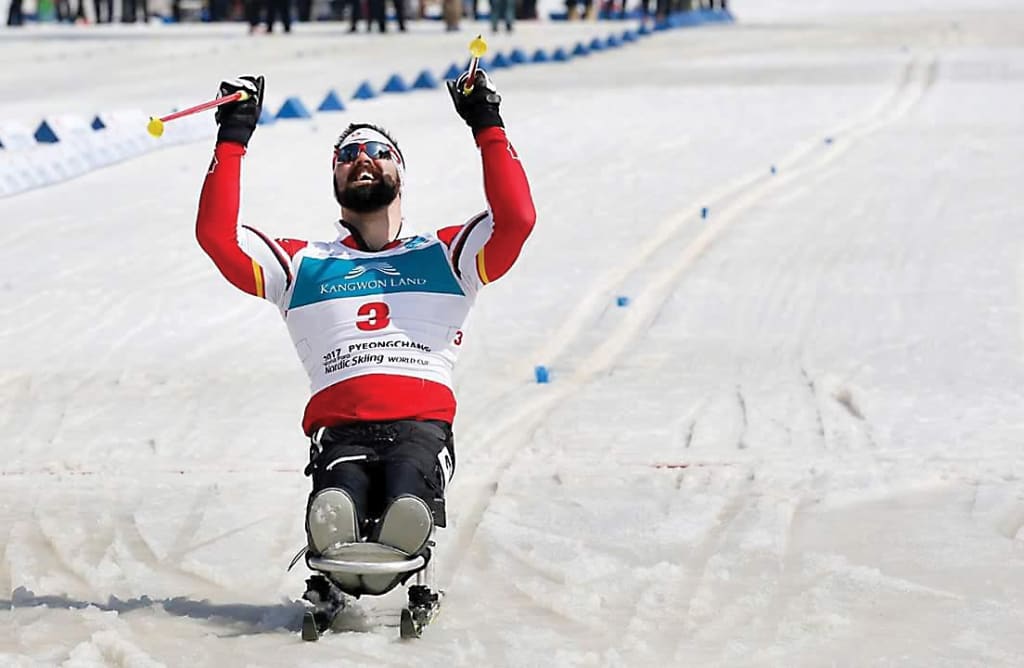
As Li Xiang lashed himself squarely into a seat mounted on a solitary ski and dashed down the blanketed incline, he delighted with the sensation of opportunity that had end up being all around exceptional after an auto crash expected him to utilize a wheelchair as a child.
Li, a 24-year-old Alpine skier representing China inside the Paralympic Winter Games, skis to win. Yet, as far as he might be concerned, it is generally an answer for get away from the separation that he says he ordinarily experiences as a person with disabilities in China.
"Discussing decency could sound great, however actually there's no such thing as reasonableness in the public arena," Li referenced in a telephone interview sooner than his race this week.
China has overwhelmed the platform at this a year's Paralympic Games in Beijing, and the Chinese specialists has held up the progress of the country's competitors as a symbol of its endeavors to propel the freedoms of people with disabilities. In any case, outside the Paralympics contenders scenes, life can in any case be extremely irksome for disabled people, and their calling choices stay limited.
While China has gained ground in certain areas, comparable to fortifying enemy of separation legitimate rules and commanding equivalent passage to business and tutoring, difficulties can in any case be especially intense.
Activists have pushed for higher privileges like the development of hindrance free conveniences and approved changes to deal with the needs of the more noteworthy than 85 million people with handicaps inside the country.
Yet, they've stood up to obstruction at occasions from a concentrated specialists and state-subsidized Chinese foundations, which in any case meet with disabilities as diseases in most authority desk work, and from a public that keeps on being generally uninformed concerning the difficulties they face.
Li says that he has gifted such a large number of insults to depend, but one memory stands glad. After a training meeting, he got back to his residence developing to look out the lift harmed. It was a blanketed winter night, he had no means to contact his colleagues, and the capacity was not wheelchair open. After prepared for two hours, Li abandoned his wheelchair out of urgency and crept up the stairs on his fingers and knees "like a canine," he referenced.
Indeed, even China's most embellished Paralympians have stood up to separation.
Blind at conveyance, Ping Yali was working at an elastic assembling unit in Beijing inside the mid Eighties when local games exercises officials moved toward her about instructing inside the public authority run sports exercises framework. She concurred, and proceeded to imply China in extended bounce on the 1984 Paralympic Games in Los Angeles. There, she developed to turn into the essential Paralympic competitor to win a gold decoration for China.
Back in China, Ping was hailed as a cross country legend and her gold award was situated inside the Beijing Olympic Museum. After her triumph, she would have liked to trip the influx of progress, as Olympians had in retirement, by changing into a manager at a commonplace games exercises agency or a mentor on an area sports exercises staff.
Be that as it may, the Chinese specialists, which spends far significantly less on instructing competitors for the Paralympics than it accomplishes for these inside the Olympics, provided meager help, and no such options arrived up. Ping went again to working in plants, but was subsequently laid off. In the end, she accepted a position as a masseur in a restorative back rub parlor, a low-paid line of work that could be a far and wide occupation for the visually impaired and outwardly weakened in China.
At one level, Ping referenced, she might bear to buy exclusively a jug of water consistently. Years after the fact, Ping got a welcome from Chinese officials to be a torchbearer on the initial service in Beijing of the Summer Games in 2008. She was respected to have been welcomed, she referenced, but was in any case disappointed by the lack of help from the national government for Paralympic competitors.
"I've been attempting to make due in this world," Ping, who has since resigned, referenced in a current telephone interview from her residence in Beijing. "I didn't get similar brilliance and treatment as the capable Olympians did."
All things considered, China advances the headway it has made. Beside fortifying its legitimate rules pointed toward reinforcing the freedoms for the crippled, all through the country there have been endeavors to make structures extra open. The specialists has moreover started giving personnel selection tests in Braille. Crippled people have moreover been dispensed further help from the national government's neediness lightening bundles.
For a pick not many, China's rising subsidizing inside the Paralympics has also made absolutely new other options.
"Doing sports has transformed me," Ji Lijia, a 19-year-old Chinese snowboarder who lost his left arm when he was a child, referenced after he got a gold decoration on the Paralympics on Monday at one of numerous contenders settings inside the northern Chinese city of Zhangjiakou, outside Beijing. "I trust that I can move more handicapped individuals to do sports and urge them to leave their homes," he referenced.
However, a few activists say that the central government keeps on being not doing adequate to ensure that people with disabilities have evenhanded section to essential sources, and that practically all of the Chinese public regardless needs essential awareness of the difficulties defied by disabled people.
A few activists say that the requirement of hostile to segregation lawful rules is frail. Little work is being completed to battle the firmly established disgrace in a general public that customarily alluded to incapacitated people as canji, characters that infer "debilitated" and "illness," and canfei, characters that suggest "disabled" and "pointless." The social and monetary benefit of staying with disabilities is viewed as so decent that babies with such difficulties are here and there abandoned by their mom and father.
A few specialists and activists have brought contemplation's up concerning the specialists' portrayal of Chinese Paralympians as thankful recipients of the state's charity. Yet again at these Games, Chinese state media retailers have been when trumpeting the outcome of the country's competitors, who have received 47 decorations, along with 14 gold, as a sign of the central government's tough help for people with disabilities.
A state-run China Daily newspaper referred to the "overwhelming turn of events" of sports exercises bundles for incapacitated people as a reflected picture of China's "kin focused advancement theory and emphasis on aiding the frail."
The purposeful publicity has rung opening for some, who say that real forward leaps would require changing the predominant perspectives inside China.
They have highlighted the current occasion of Li Duan, a 43-year-old outwardly disabled triple skip screen competitor. At the initial service of the Winter Paralympic Games in Beijing on March 4, Li battled for more than 30 seconds on abide television to gentle the Olympic cauldron. Whenever he ultimately figured out how to make a move, cheers emitted from the arena. In Chinese state media stories and via online media, pundits lauded Li's tirelessness as moving.
A few activists and others with disabilities, regardless, have been frustrated by the scene. To them, the function's coordinators should have planned a lighting custom that obliged Li's noticeable debilitation as a substitute of featuring it by making an obstacle that he expected to survive.
"We shouldn't consider handicaps to be blemishes,; we should consider it to be a personality," referenced Wu Di, a Ph.D. student who centers around inadequacy privileges on the Massachusetts Institute of Technology. "We should change society - not anticipate that individuals with inabilities should change themselves."
Changing the outlook of society could sound overwhelming, but the goal is maybe more straightforward than it appears, referenced Li, the Paralympic Alpine skier.
"The main thing is sympathy," Li referenced after his race on Thursday. "That is, to cause conventional individuals to be more able to think in the shoes of individuals with disabilities."
About the Creator
Shola Sodiya
Copywriter, proofreader and travel writer for ethical,sustainable and purpose lead businesses. Sports enthusiast and researcher. #copywriter #proofreader #travel #sports #researcher






Comments
There are no comments for this story
Be the first to respond and start the conversation.